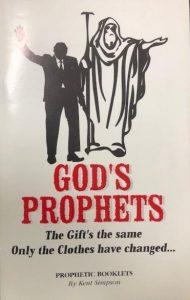It is Finished
[cvm_video id=”5484″]
Fruits of Spiritual Harvest: Grape Vines
Grape Vines are mentioned more than any other fruit or plant in the Bible and were one of the most important crops in the Ancient World. Because the precious vines took so much time and effort by the Husbandman, who cultivated the vineyard, to become established and begin producing good long-lasting fruits, grape vines served as a symbol of constant faithfulness and dedication.
Psalm 80 describes Israel as a vine that had been “uprooted from Egypt“. After God “drove out the nations,” “cleared the ground for it,” “and transplanted [the vine],” “[Israel] took root and filled the land“. Isaiah 5, known as The Song of the Vineyard, poetically and prophetically describes how the Good Gardener dug up and removed the stones of a fertile hillside, before planting the choicest vines within it.
The domestication of grapes was tremendously resource intensive and even after clearing and preparing the soil, vineyards required the construction of additional infrastructure, such as tall walls, watch towers, and wine presses to be able to protect and process the fruits. Because sweet grapes were such a luxury in nature, they attracted the attention of wild animals such as boars (ref. Psalm 80:13), which would trample open, unprotected fields. Even vineyards with high walls were susceptible to foxes which would climb over the barriers at night and destroy the entire vineyard (ref. Song of Songs 2:15).
While outside threats from wild animals were a constant concern, cross pollination with wild grapes was a more insidious problem. Domesticated grapes, which have both male and female flowers on each plant, are self-fruiting, and do not require cross-fertilization. Though hybridization of domesticated and wild grape species typically created plants that were more disease resistant and temperature tolerant, this increased ability to survive in that specific environment came at the extreme cost of the quality of the fruit, which is still a major issue for viticulturists (wine growers).
After the Good Gardener had cleared the fields, built a watchtower and walls to protect the vineyard, and had cut out a wine press to process the fruits, when He looked for ripened grapes, He found only stinking fruit.
The Hebrew word used for “stinking fruit” (bĕ’ushiym) [בְּאֻשִׁםי] which comes from the word for “stench“, was typically applied to Mediterranean wild grapes, which were extremely sour and had a distinct “foxy” animal musk scent. Because the vine had been polluted by outside species, it was now producing the same worthless putrid berries as the native varieties.
The Song of the Vineyard additionally explains that the protected grape plantation was Israel, which God “had planted like a choice vine from the very best seed,” yet had turned away from Him “into a rotten wild vine” (ref. Jeremiah 2:21). Israel’s “cross-pollination” with the surrounding cultures through adopting their idolatry was a compromise that may have made them more suitably adapted to The World, but God viewed this collaboration as a corruption of the Vine He had established.
During the Last Supper, Jesus declared that He was “the True Vine, and [His] Father the Husbandman” who cuts away any branches which did not bear fruit, but “every branch that does bear fruit, He pruned it, that it might bring forth more fruit“. The Greek word (kathairō) [καθαίρω] means both pruning and purifying.
This pruning and purifying process of even those who bore fruit was necessary, as Israel had previously become a “luxuriant vine, yielding fruit only for [themselves]” and “the more [their] fruit increased, the more [they] increased their altars,” and “the better [their] land produced, the better [they] made their sacred pillars.” (ref. Hosea 10:1-2). Though Israel had become materially prosperous, they had also become idolatrous, and had separated themselves from the Living God that had cultivated them.
Christ declared Himself The True Vine and His Disciples were The Branches and that if they remained in Him, they would bear much fruit, but apart from Him they could do nothing. Jesus warned them not to become like Jerusalem, which had become a “Useless Vine“, thrown into the fire “because [the people of Jerusalem] had been unfaithful” (ref Ezekiel 15). If His Disciples did not remain in Him, they too would be “like a branch that is thrown away and withers” to be “picked up, thrown into the fire and burned” (ref. John 15:5-6).
However, if they remained faithful, they could “ask whatever [they wished] and it would be done for [them]” and “whatever [they] ask in [Christ’s] name the Father [would] give [them].” This was to empower them in their appointment to “bear much fruit,” “fruit that will last,” not for their own glory (ref. Mark 12:1-12), but for the Father’s (ref. John 15:7-8, 16).
Though God had cleared out and set His Protection over the Promised Land for His Choice Vine to thrive and prosper, they had turned from Him and involved themselves in the idol worship of their neighbors. This “cross-contamination” corrupted the fruit and made it rotten and useless, requiring the worthless vine to be cast into the fire. In contrast, those who remained solely connected to the True Vine, would receive anything they required in order to produce many good lasting fruits.
The image of God as the Good Gardener, tending, pruning, and cultivating His prized Vineyard, serves as a beautiful reminder of His Loving Faithfulness towards those He calls His Own. By abiding in Him, rather than the World, He not only provides everything that we need to survive, He empowers us and creates the perfect environments for us to thrive and produce abundant eternal spiritual fruits for His Glory.
Prepared by, Kent Simpson, Apostolic Prophet & Eric Sepulveda, PMT Administrator
For more prophetic media groups click here



